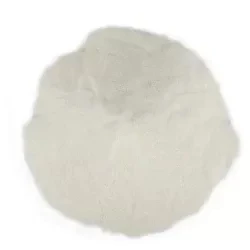Warning: Undefined array key "title" in /home/www/wwwroot/HTML/www.exportstart.com/wp-content/themes/1198/header.php on line 6
Warning: Undefined array key "file" in /home/www/wwwroot/HTML/www.exportstart.com/wp-content/themes/1198/header.php on line 7
Warning: Undefined array key "title" in /home/www/wwwroot/HTML/www.exportstart.com/wp-content/themes/1198/header.php on line 7
Warning: Undefined array key "title" in /home/www/wwwroot/HTML/www.exportstart.com/wp-content/themes/1198/header.php on line 7
- Afrikaans
- Albanian
- Amharic
- Arabic
- Armenian
- Azerbaijani
- Basque
- Belarusian
- Bengali
- Bosnian
- Bulgarian
- Catalan
- Cebuano
- China
- China (Taiwan)
- Corsican
- Croatian
- Czech
- Danish
- Dutch
- English
- Esperanto
- Estonian
- Finnish
- French
- Frisian
- Galician
- Georgian
- German
- Greek
- Gujarati
- Haitian Creole
- hausa
- hawaiian
- Hebrew
- Hindi
- Miao
- Hungarian
- Icelandic
- igbo
- Indonesian
- irish
- Italian
- Japanese
- Javanese
- Kannada
- kazakh
- Khmer
- Rwandese
- Korean
- Kurdish
- Kyrgyz
- Lao
- Latin
- Latvian
- Lithuanian
- Luxembourgish
- Macedonian
- Malgashi
- Malay
- Malayalam
- Maltese
- Maori
- Marathi
- Mongolian
- Myanmar
- Nepali
- Norwegian
- Norwegian
- Occitan
- Pashto
- Persian
- Polish
- Portuguese
- Punjabi
- Romanian
- Russian
- Samoan
- Scottish Gaelic
- Serbian
- Sesotho
- Shona
- Sindhi
- Sinhala
- Slovak
- Slovenian
- Somali
- Spanish
- Sundanese
- Swahili
- Swedish
- Tagalog
- Tajik
- Tamil
- Tatar
- Telugu
- Thai
- Turkish
- Turkmen
- Ukrainian
- Urdu
- Uighur
- Uzbek
- Vietnamese
- Welsh
- Bantu
- Yiddish
- Yoruba
- Zulu
Oct . 05, 2024 06:58 Back to list
propylene glycol 99
Understanding Propylene Glycol 99 Properties, Uses, and Safety Considerations
Propylene glycol, chemically known as propane-1,2-diol, is a synthetic organic compound with the molecular formula C3H8O2. It is a clear, colorless, and nearly odorless liquid that is hygroscopic, meaning it readily absorbs water from the environment. The purity level of propylene glycol can vary, but when referring to propylene glycol 99, we are typically discussing a product that consists of at least 99% pure propylene glycol, making it highly effective for a variety of applications.
Properties of Propylene Glycol 99
The properties of propylene glycol 99 make it a versatile compound in both industrial and consumer applications. Its low toxicity, excellent solubility in water, and ability to mix with many organic solvents provide it with a wide range of beneficial characteristics. Its low freezing point and high boiling point enable it to function effectively in various temperatures, making it suitable for use in different climates and settings.
Propylene glycol 99 has a sweet taste, which is often an important feature in applications such as food and pharmaceuticals. It is also hygroscopic, which helps in moisture retention, making it a favorable ingredient in many cosmetic and personal care formulations.
Applications of Propylene Glycol 99
1. Food Industry In the food sector, propylene glycol 99 is widely used as a food additive, designated as E1520 in Europe. It acts as a humectant, solvent, and food carrier. It's commonly found in food products like baked goods, frostings, and flavored syrups to enhance texture and moisture.
2. Pharmaceuticals The pharmaceutical industry utilizes propylene glycol 99 as a solvent for oral, injectable, and topical medications. Its ability to dissolve various compounds makes it an essential ingredient in many medicinal formulations. Additionally, propylene glycol is known for its antimicrobial properties, contributing to the overall shelf life of pharmaceutical products.
propylene glycol 99

3. Cosmetics and Personal Care In the realm of cosmetics and personal care products, propylene glycol 99 serves as a humectant and skin-conditioning agent. Its ability to retain moisture helps improve the texture of creams, lotions, shampoos, and deodorants, enhancing their effectiveness and feel on the skin.
4. Industrial Applications Propylene glycol 99 is used in manufacturing antifreeze and de-icing solutions due to its low toxicity compared to ethylene glycol. It is also incorporated into hydraulic fluids, brake fluids, and heat transfer fluids in various industries, ensuring optimal performance and safety.
5. Chemical Intermediates In the realm of chemical manufacturing, propylene glycol 99 is used as a building block for producing various chemicals and polymers. It can serve as a precursor to plastics, resins, and other materials, reinforcing its importance in industrial chemistry.
Safety Considerations
Although propylene glycol is generally recognized as safe (GRAS) by regulatory agencies such as the U.S. Food and Drug Administration (FDA), it is essential to use it according to established guidelines. Ingestion of high levels may lead to adverse effects, but the product's low toxicity and favorable safety profile make it an excellent choice for many applications. However, individuals with sensitivities or allergies should consult professionals before using products containing propylene glycol.
Conclusion
Propylene glycol 99 is a vital compound that plays a significant role in various industries due to its unique properties and versatility. From food and pharmaceuticals to cosmetics and industrial applications, its benefits are extensive, contributing to the formulation and effectiveness of numerous products that consumers rely on daily. Understanding propylene glycol’s properties, applications, and safety considerations can inform users and manufacturers in their decisions, ensuring responsible usage and maximizing benefits. As industries continue to innovate, the role of propylene glycol will likely expand, solidifying its position as an indispensable ingredient in modern formulations.
Latest news
-
Certifications for Vegetarian and Xanthan Gum Vegetarian
NewsJun.17,2025
-
Sustainability Trends Reshaping the SLES N70 Market
NewsJun.17,2025
-
Propylene Glycol Use in Vaccines: Balancing Function and Perception
NewsJun.17,2025
-
Petroleum Jelly in Skincare: Balancing Benefits and Backlash
NewsJun.17,2025
-
Energy Price Volatility and Ripple Effect on Caprolactam Markets
NewsJun.17,2025
-
Spectroscopic Techniques for Adipic Acid Molecular Weight
NewsJun.17,2025

